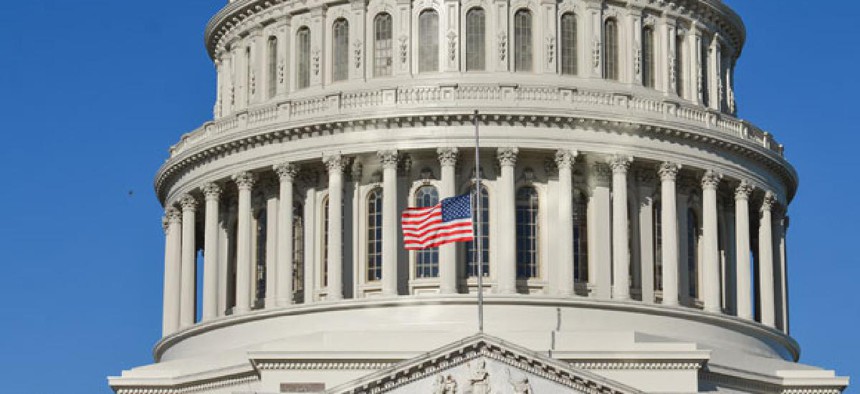House Backs IT Buying Overhaul

Orhan Cam/Shutterstock.com
Reforms added to a major defense policy bill would give agency CIOs authority over all IT spending.
This story has been updated to include comment from Rep. Issa.
The House on Friday passed a bipartisan plan to overhaul the way the government purchases and manages information technology, as part of a major defense policy bill.
House members agreed to add a version of the Federal Information Technology Acquisition Reform Act as an amendment to the National Defense Authorization Act on a voice vote early Friday and passed the full bill shortly after 1 p.m. The amendment could still be removed in a House-Senate conference committee.
The IT reform act was sponsored by House Oversight and Government Reform Committee Chairman Rep. Darrell Issa, R-Calif., and Rep. Gerry Connolly, D-Va., ranking member of the committee’s government operations panel. It would give CIOs authority over all IT spending inside their agencies and create a collection of agency-based Assisted Acquisition Centers of Excellence that other agencies may consult regarding particular categories of IT purchases.
The bill would also create a Federal Infrastructure and Common Application Collaboration Center under the federal CIO that would serve as a “tiger team” to assist agencies with tricky acquisitions
The IT reform act “will put real meaning behind the term chief information officer,” Issa said on the House floor as the amendment was being discussed. “Never again will someone have that title and have no budget authority or responsibility.”
A spokesman said Tuesday that Issa wanted to pursue “all channels to advance his IT reform legislation” and noted the 1996 Clinger-Cohen Act, which established the modern system of agency chief information officers, was also advanced as an amendment to the annual Defense authorization bill.
“Mission-critical IT investment failures not only waste taxpayer dollars, but they jeopardize our nation’s safety, security, and economy," Connolly said in a statement after the bill's passage. "Our bipartisan legislation will end a status quo that is both unacceptable and unsustainable, creating an efficient and effective federal IT procurement system that best serves agencies, industry, and most importantly, the American taxpayer.”
The government spends about $80 billion on IT annually, a substantial portion of which auditors say is lost to waste, duplication and inefficiency or could be saved by switching to more modern systems that would better serve federal employees and taxpayers.
Federal CIO Steven VanRoekel has told Congress he does not believe new legislation is necessary to make government IT spending more efficient. He told members of the Senate Homeland Security and Governmental Affairs Committee on Tuesday that giving agency CIOs budget authority is less important than offering them a “seat at the table” when major spending decisions are made.
David Powner, director of Information Technology Management Issues at the Government Accountability Office, told committee members agency CIOs may not need authority over all IT spending but that giving CIOs authority over commodity IT spending such as Internet and cellphone service is “a no brainer.”
The IT reform act also would:
- Promote broader use of “bid to price” contracts in which an agency states the price it plans to pay for a good or service and then invites vendors to compete based on quality;
- Broaden the government’s cadre of IT and acquisition experts;
- Give agency CIOs flexibility to establish working capital funds to help pay for the transition to cloud-based computing services; and
- Require agencies to report more fully on the cost savings achieved by consolidating federal data centers.
(Image via Orhan Cam/Shutterstock.com)






